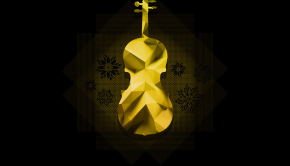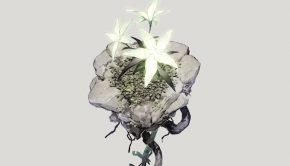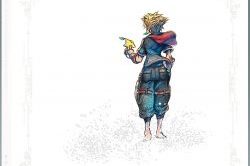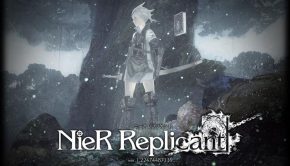Yoko Shimomura Interview: From Stockholm and Cologne
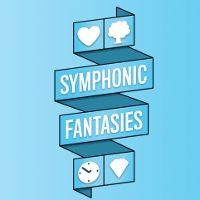 In the first of a four part interview series at Symphonic Fantasies, Yoko Shimomura talked to us exclusively about her past, present, and upcoming works. We agreed to combine it with a complementary interview by GameMusic.pl that occurred at Sinfonia Drammatica. The result provides the most comprehensive insight into the mind of the world’s most famous female game composer.
In the first of a four part interview series at Symphonic Fantasies, Yoko Shimomura talked to us exclusively about her past, present, and upcoming works. We agreed to combine it with a complementary interview by GameMusic.pl that occurred at Sinfonia Drammatica. The result provides the most comprehensive insight into the mind of the world’s most famous female game composer.
Yoko Shimomura has become legendary for her works on the Kingdom Hearts, Mario & Luigi, Parasite Eve, and Street Fighter. More recently, her music has been commemorated with Drammatica, Kingdom Hearts Piano Collections, and the aforementioned concerts. We discuss all these projects in the interview while giving a hint at what to expect from her in the future.
Interview Credits
Interview Subject: Yoko Shimomura
Interviewer: Chris Greening, Don Kotowski, Kamil Rojek, Mateusz Pawlak
Editor: Chris Greening
Translation & Localisation: Kanako Boecker
Coordination: Thomas Boecker
Interview Content
Interview Team: After the worldwide success of your album Drammatica – The Very Best of Yoko Shimomura, it can be said that the Sinfonia Drammatica concert is a crowning of the collaboration between Thomas Boecker and yourself. Whose idea was it to originally work on the Drammaticacompilation and then produce a concert dedicated to it?
Yoko Shimomura: It was my idea to release the Drammatica compilation, together with Square Enix. We had many possibilities and offers from potential producers. Thomas was well-known for his work with Square Enix, and his offer was attractive, so he was chosen from the others. I found the idea ofSinfonia Drammatica very interesting — the idea of Western and Eastern game music meeting — and that’s why I came to Stockholm.
Interview Team: Chris Huelsbeck’s music was also performed at the evening. Are you familiar with his works?
Yoko Shimomura: I received the Symphonic Shades album as a gift from Thomas. I really liked what I heard, especially the Turrican II piano concerto, which is my favorite. So yes, I’m now familiar with Chris Huelsbeck’s works.
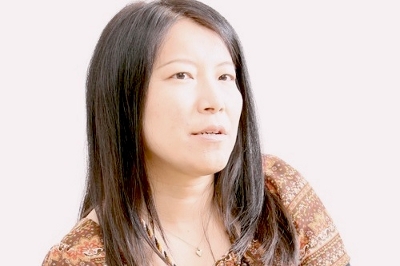
Interview Team: Moving on to the more recent Symphonic Fantasies, this historic event opened with your own work on the Kingdom Hearts series. Were you nervous or excited about this? What do you feel arranger Jonne Valtonen and pianist Benyamin Nuss brought to the music of the series?
Yoko Shimomura: I was just very excited to listen. There was nothing to make me nervous! I think Jonne’s arrangement was very colourful and beautiful — just superb really. As a pianist myself, I felt sorry that Benyamin Nuss had to do so much work. It must have been extremely difficult for him. Anyway, he is a very, very good pianist and he pulled it off. I gave him a big hug at the end!
Interview Team: Talking of the piano, the Kingdom Hearts Piano Collections were released recently. What was your mindset while creating this album? If Drammatica was intended as a summary of your musical creations, what is the meaning and reason behind these piano pieces?
Yoko Shimomura: It was the first time that Square Enix allowed the release of a piano album that wasn’t connected to the Final Fantasy franchise. You’re probably used to the Final Fantasy piano albums, which used to be released after nearly every official Final Fantasy soundtrack. There were many piano arrangements of Kingdom Hearts, and I got many emails from fans — requests to consider releasing a piano collection featuring Kingdom Hearts tracks. Music producers from Square Enix also pushed for such a collection, and this is how this idea was born.
Interview Team: Can we expect a second volume anytime soon?
Yoko Shimomura: It depends on the demand from fans, after they hear the first volume. But if I do get the opportunity to release a second volume, what would you suggest I put on it?
Interview Team: More battle themes!
Yoko Shimomura: I’ll take that into account!
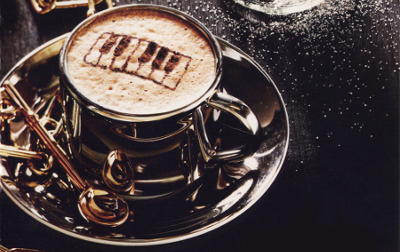
Interview Team: In your interview with RocketBaby, you said, “I have games that I would like to work again as a new project if the opportunity were to arise”. Now that you have become freelance, was has it been like to finally get the opportunity to revisit some of these works? Can you elaborate on which projects were particularly important to you?
Yoko Shimomura: I have several projects that I still feel tied to, ones that were turning points in my life. The most significant of these are the Street Fighter II, Super Mario RPG, and Kingdom Heartssoundtracks. Kingdom Hearts is the most special for me, and I’m always ready to get back to the franchise. I’m even currently working on background music for its newest spin-off.
Interview Team: On that note, it seems fitting to discuss your music on Street Fighter II further. Given you were a new Capcom employee at the time, did you ever expect Street Fighter II’s music to create the massive impact it did? Do you have a personal favourite stage theme from the game?
Yoko Shimomura: This is a difficult question! Street Fighter II really was my baby and so it’s difficult to pick a favourite stage theme. I really didn’t expect the music to create quite as much impact as it did and still follow the music of the series quite closely. I have lots of great memories about the project, such as performing piano for a medley at the Game Music Festival.
Interview Team: Out of curiosity, would you also mind confirming which three compositions in the game were not composed by you?
Yoko Shimomura: *thinks carefully* Ahh yes. Do you know Sagat’s theme? Isao Abe composed this one in a rock or funk style. Also, he created two well-known jingles, “Here Comes a New Challenger” and “Round Start”. *whistles*
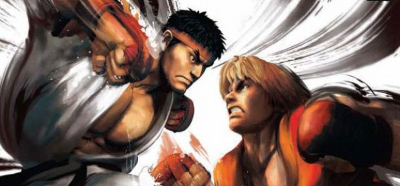
Interview Team: The three-part Mario & Luigi RPG series is the successor to the Super Mario RPGproject that you earlier mentioned. Are you excited that there will finally be an album release for the series? What considerations were there when selecting the track listings?
Yoko Shimomura: Before I started composing these games, it was quite challenging to get the image of Mario and Luigi in these games. It was therefore quite difficult to start writing the music, but I gradually persevered to create quite light soundtracks. However, there are plenty of darker elements too, especially in the Bowser-focused third game. The Club Nintendo soundtrack release is great news. It will mainly focus on the best themes from the first and third games, although the second game will get a look-in.
Interview Team: Returning back to Kingdom Hearts, your compositions for the original game have often been reused in sequels and spinoffs to the series. Why did you decide upon this approach and why do you feel it has been so sustainable?
Yoko Shimomura: Reusing music often happens for any composer and project. In this case, the reuse of the music was mainly to establish connections between the games — such as between Kingdom Hearts and Kingdom Hearts II — particularly in the common worlds. Although the initial compositions were popular, I also try to make sure there are some differences to reflect differences between the worlds, for example “Hollow Bastion” in Kingdom Hearts II, and plenty of new compositions as well.
Interview Team: On that note, will Kingdom Hearts: Birth by Sleep mainly feature reprises of your past work or are rumours of a co-composer true?
Yoko Shimomura: *gasps* Where did you hear this?! I have done all the work myself so there might have been a misunderstanding. If I could afford the cost to hire a co-composer, then I might prefer to do it, but currently I do all Kingdom Hearts productions myself. There are usually people who remix or program the music, but I handle everything else.
As with 358/2 Days, Birth by Sleep will again feature both new compositions and arrangements from earlier games. I’m handling the background music for the entire project.
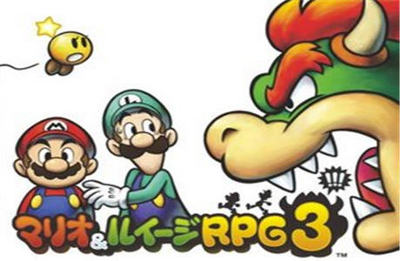
Interview Team: In recent years, hardware limitations have diminished greatly allowing game composers to compose more freely. How do you feel technological liberation has influenced your must and the industry as a whole?
Yoko Shimomura: My basic concepts towards composing haven’t changed over the last 20 years. However, there were so many limits in audio capacity and whatnot before the PlayStation years, therefore I was forced not to use certain things. I’m very happy that I now have the freedom to compose any type of music. However, the DS device is still a big challenge that I worked hard to overcome on the Mario & Luigi RPGs and Kingdom Hearts 358/2 Days.
Interview Team: Are you excited about the possibilities next-gen consoles offer for projects like Final Fantasy Versus XIII? Do you feel as much pressure working on this title as you do your Kingdom Hearts projects?
Yoko Shimomura: Technically, everything is open on this game. I’m very liberated in terms of technical opportunities on these projects. I’m also very excited given it is my first big project on a next-gen console. That said, I’m not allowed to talk much more about Final Fantasy Versus XIII at the moment. But right now, I’m so focused on the soundtrack for Kingdom Hearts 358/2 Days and Kingdom Hearts Birth by Sleep that I don’t even think about this project!
Interview Team: Your vocal album murmur offered something completely different from you. What was the concept of this album and how did you reflect it while maintaining such diversity? Did you enjoy working with such a kawaii vocalist, Chata?
Yoko Shimomura: I was confused for a minute! Chata is also the name of my cat. I thought ‘my cat didn’t sing on this album’! Then I realized Chata is the name of the vocalist too, haha! She has a very cute voice and is a very sweet person too. She writes wonderful Japanese lyrics.
Anyway, I don’t remember many other details about the project. All I remember is that I worked around the clock on the project and was exhausted by the end!
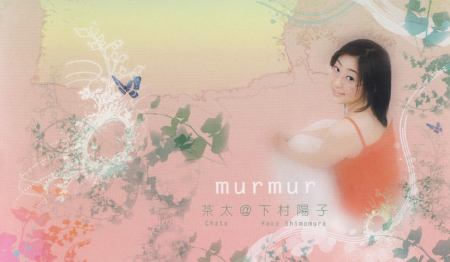
Interview Team: On a related note, you’ve recently made some contributions to the pop’n music series. How does composing for rhythm games differ from creating background music for other games? Are your contributions to these games prominent ones?
Yoko Shimomura: Composing for these types of games is quite different. In music games, it is possible to create music quite freely while maintaining a strong rhythmical focus. RPGs are based on stories written by scenario writers and it is important to create music that follows the stories and visuals.
Anyway, I was a guest for pop’n music 13 Carnival and pop’n music 17 The Movie alongside many other composers. Some of my contributions are hidden tracks, so I’m not sure how prominent they are, but I think many will enjoy them when they’re unlocked. It was fun participating in these projects.
Interview Team: You will be contributing a track for the Mushihimesama Double Arrange Soundtrack CD later this year. How did you come to participate in this project and what can we expect from your arrangement?
Yoko Shimomura: Well, Cave just scouted me and I thought it sounded interesting, so was able to accept. The music is ready for the album — specifically an arrangement of the Stage 2 theme from the second game — but I can’t say much about it yet. However, the arrangement is very different from what I usually create.
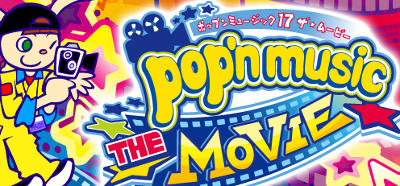
Interview Team: Now we’ve talked about your recent projects, let’s go back to the Drammatica album for a moment. During your chat with Music4Games, you explained the process of selecting tracks for the compilation. The selected pieces were popular among video game music fans, well-suited for orchestration, and interesting to you personally. With so much potential material, did you ever consider releasing Drammatica as a two disc set? Many fans would love to hear the Super Mario RPG or Parasite Eve music in a new orchestrated form!
Yoko Shimomura: If I had complete freedom, I’d really love to expand Drammatica to a two or even three CD set. It was Square Enix’s decision to release this album on one CD, though, and that’s how it stayed.
Interview Team: In your interview with Nintendo Dream Magazine, you said that your favorite composed track was “Dearly Beloved” from the Kingdom Hearts soundtrack. However, its arrangement wasn’t included in the Drammatica tracklist. Is there a reason why this track wasn’t included?
Yoko Shimomura: Well, the concept of the Drammatica album involved including tracks that had never been orchestrated before — ones that I felt deserved it. “Dearly Beloved” was orchestrated on the Kingdom Hearts soundtracks, as you remember. Concerts attendees are lucky, though, because the piece featured at both Sinfonia Drammatica and Symphonic Fantasies.
[Editor’s Note: With respect to Sinfonia Drammatica, Yoko was talking about the track titled “Fantasia”. That medley was a surprise encore at Sinfonia Drammatica and included “Dearly Beloved”. “Dearly Beloved” was also a major recurring theme on the Kingdom Hearts suite at Symphonic Fantasies.]
Interview Team: If this was not a Square-Enix produced album, which other tracks would you put on it?
Yoko Shimomura: It’s really difficult to choose among tracks, as I’ve composed such a large amount so far. Also, if I answer this question, it may cause some legal problems with Square Enix. *laugh* I’d concentrate on my unknown works — those that have never been released on any CD — because there’re many of them. I hope I’ll put them on a separate CD someday.
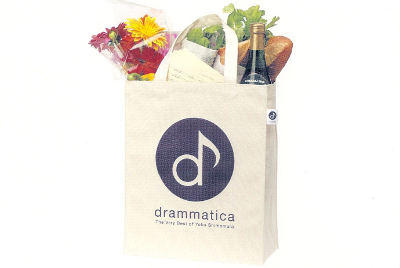
Interview Team: Many of your famous albums, like the Parasite Eve Original Soundtrack, Parasite Eve Remixes, and Live A Live Original Sound Version, have never been re-released. Is there any hope that we will see them reprinted in the future?
Yoko Shimomura: I have exactly the same wish, but I have no idea how to make this possible. If there are really people out there who would buy reprints of my older works, they should gather and sign under an online petition. That would be the first step. That said, the Live A Live soundtrack was at least republished digitally through the Legendary Tracks label a little while ago.
Interview Team: Talking of which, you’re currently working on Parasite Eve: The 3rd Birthday for the PSP platform. What is the status of this project and what should we expect from its background music? Will the soundtrack be reminiscent of the tactical-based Parasite Eve, or will it be a dynamic score that reflects the third person shooter gameplay of this particular title?
Yoko Shimomura: Oh, that’s a rare question. Not many people ask me about the new Parasite Eve, because the project is in an early development stage. But I can tell you to expect something totally different and totally new, compared to the original Parasite Eve soundtrack.
Interview Team: Do you have any other upcoming projects on the horizon that we do not know about?
Yoko Shimomura: Yes. In addition to the previous discussed Square Enix projects, I am composing for a game wthat ill be revealed next week! One interesting feature is that it will feature some vocal themes during the battles.
[Editor’s Note: The project has been revealed to be a PSP game called Last Ranker created by Image Epoch and Capcom.]
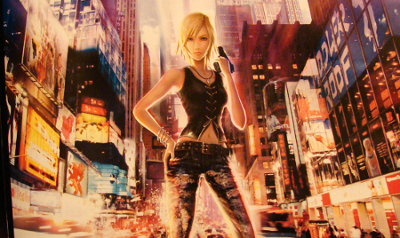
Interview Team: You’re most likely the most famous female video game music composer in the world. Is it harder for women to become successful in the game music industry?
Yoko Shimomura: *laugh* I’m really surprised that you call me the most famous female video game music composer in the world. We Japanese work in our small home studios everyday, always in front of our computers. We don’t realize that our music has such a worldwide range. I don’t feel like a video game music superstar at all! *laugh* Obviously, it took me about 20 years to gain some attention. I just did my best.
Interview Team: Thank you so much for your time with us today Shimomura-san. Is there anything you would like to say to your fans around the world?
Yoko Shimomura: I am sorry I can’t say that much interesting and attractive information about upcoming projects. However, I really look forward to the day when my fans are able to listen to what I’m working on now. Please keep in touch! I’m always open to more communications!
Many thanks to Thomas Boecker for organising this interview and Kanako Boecker for kindly translating it. Without them, this interview would have never been possible. Of course, many thanks to Yoko Shimomura for taking the time to take part and giving such interesting responses.
Posted on September 30, 2009 by Chris Greening. Last modified on March 1, 2014.

